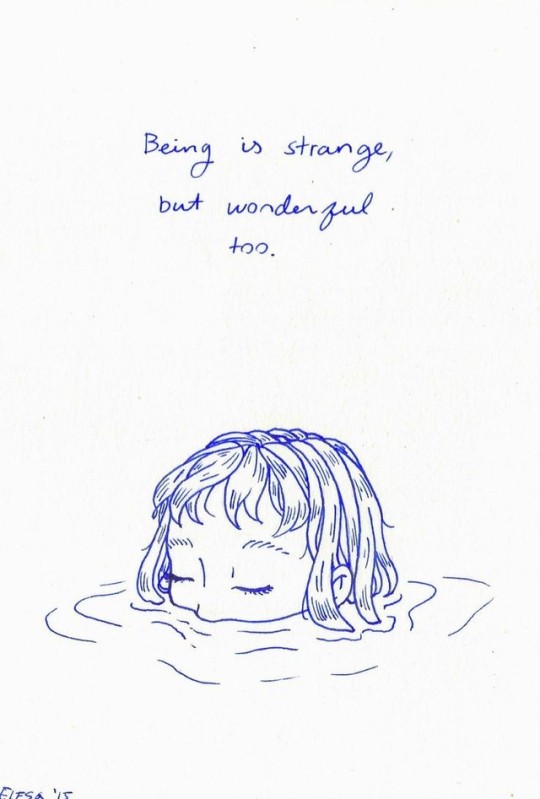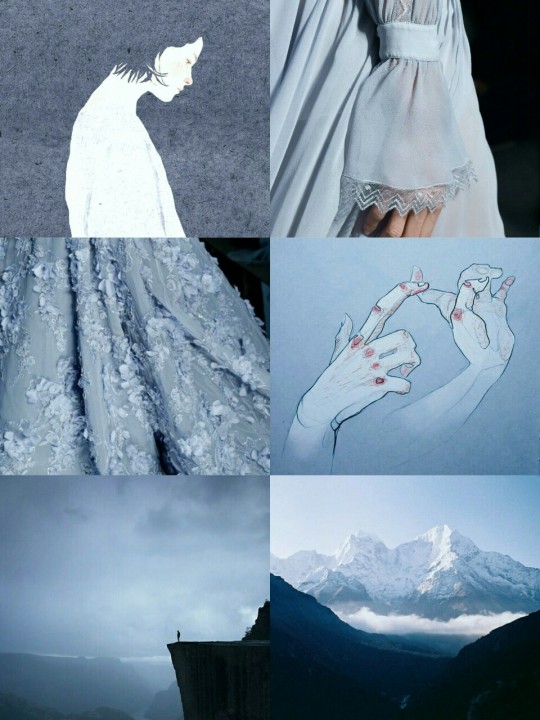Text
Enneagram Tritype 469 - The Seeker
469 Seeker Archetype
If you are 469, you are intuitive, inquisitive and accepting. You want to be original, certain and peaceful. You are a very sensitive and can experience intense feelings of self-doubt and uncertainty. As a result you need multiple sources of confirmation. You want to be individualistic but can fear being separate from others.
Your life mission is to raise the questions pertaining to the mysteries of life and share your findings with others. A true seeker, you are happiest when you feel you can answer the question of who you are.
You can be so focused on your feelings, insecurities and doubts that you can feel paralyzed by the fear of making the wrong decision and of being misled or duped.
The 469 is a seeker with a lot of self doubt. There is always more to learn when you are this tritype but the desire is to develop a philosophy. the 6 and 4 have the most self doubt along with the 9. The 4 doubts their feelings, the 6 their thoughts. 6s want reassurance, 4s want praise to offset their natural tendency to be shame sensitive. The 4 leading is more concerned with the Who am I question and hopes to ‘someday’ have that answered through constant introspection and referencing their own feelings. I can only speak from my own lens and say that the 6 leading is less identity focused. Who Am I doesn’t enter the picture like the 4, and less reliance on needing to set themselves apart to resolve the philosophical dilemma.
…the 6 will stereotypically give 469 some sort of orientation around associations to ease anxiety…469 will have more of a push-pull reaction pattern with authority in staving off inner anxiety.
The 9 or 4 with the 469 tritype has the 3 types that feel doubt. Doubt breeds insecurity which increases anxiety. The gift of this tritype is the ability to search for meaning. What begins as doubt ultimates brings a great deal of knowledge that can lead to greater understanding.
The sx 469s want the security of that comes with a trusted relationship. Grief can feel overwhelming and many have shared feeling flooded. They also report that grief brings up fear.
Both the 469 and 269 tend to be passive. The 269 is more engraciating. The 469 is more aloof.
The 468 reacts and rings the alarm to prevent making a mistake to calm down and the 469 doubts and procrastinates to avoid making a mistake…. To calm down.
The 469 is very gentle unless threatened.They are very out of touch with their gut! The struggle is with doubt and inaction.
9s fear being in conflict. 479 vs 469. Look at the level of confidence and optimism. The 7 brings a light touch with magical thinking, hoping for the best. In contrast, the 6 brings support and loyalty. Both are highly intuitive but the 469 has more doubts - The 479 is more future oriented, focusing on the possibilities. The 469 is more dutiful with a heavier heart, fearing that they can’t make enough of a difference.
469s report a fear of making ten wrong decision and then having feelings of painful self consciousness and shame for having done so…. But also for not making a decision.
If 6 is dominant in the 469 tritype, there are more obvious fears and concerns. However, 946 and 469 are equally troubled by insecurities.
All 3 types have a little paralysis through analysis. And all 3 hate conflict. ;)) The 469 experiences extreme self doubt and hesitates more than other 4s. It is a shy 4 but they do have their own opinions…they are just reluctant to voice them. The 649 has the greatest difficulty trusting their own thoughts and tends to seek multiple confirmations before making decisions. The 964 is plagued with indecision too and can look like a 6 but they are not as inclined to seek opinions from others. They just avoid the conflict hoping it will resolve itself.
The 469 is the most doubting tritype regardless which type is in charge. It is also the tritype that most struggles with a constant sense of self. They can also be somewhat passive. The only tritype more passive is the 269. The 269 is happier in presentation.
Regarding doubt for the 469: I think Katherine said that the 4 has self-doubt, the 6 doubts themselves and others and the 9 has the believer/doubter dichotomy.
the 649 (or 469 964) want peace harmony and gentleness. They are sensitive and doesn’t know what to trust and in particular doesn’t know what to trust in themselves. She stated that the 6 is more often than not phobic and needs multiple sources of confirmation and information. They don’t feel they can rebound from emotional pain so they tend to avoid it through the questioning process and end up finding more questions.
469 is going to have more difficulty being separate from others. More shame and anxiety about being different. There would be more checking in with others.
(4)-6-9 - The Normative 4
4-(6)-9 - The Withdrawn 6
4-6-(9) - The Reactive 9
This tritype has many self-confidence problems. They may often feel as though they need help from others, but that they are unable to get it. They fight between needing others and striving for seclusion.
6-4-9
Accepting and intuitive, most emotional and passive, can think they are a 2 or a sexual subtype. Most doubting 6.
This will often explain why non 6s that are not self-preserving wonder why they run high anxiety. For example, the 9 or 4 with the 469 tritype has the 3 types that feel doubt. Doubt breeds insecurity which increases anxiety. The gift of this tritype is the ability to search for meaning. What begins as doubt ultimates brings a great deal of knowledge that can lead to greater understanding.
444 notes
·
View notes
Text
“It doesn’t matter what you are, I just want you to be that and be honest about it.”

5 notes
·
View notes
Text
“But where was my body? Where was I in these words? What of this belonged to me?”
— Jasminne Méndez, from Night-Blooming Jasmin(n)e: Personal Essays and Poetry
904 notes
·
View notes
Photo
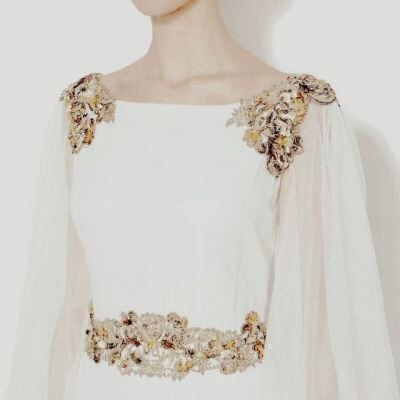
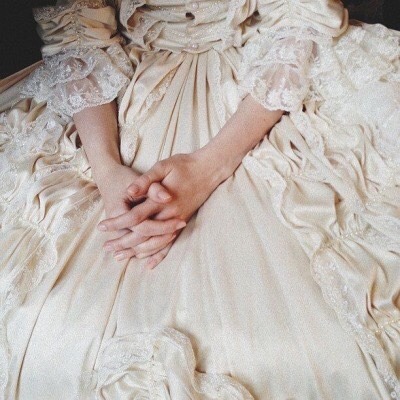

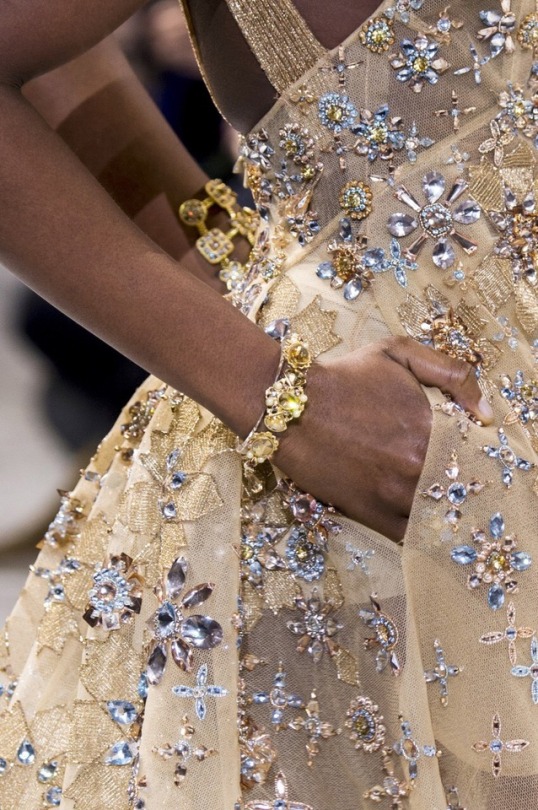

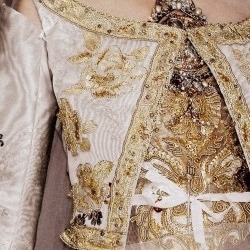


Enneagram 9
The saying is, the one who does not desire power is the only one who can handle it. 9s being gutcore do desire control to a degree, but doesn’t seek it out like 8s or even 1s, and rarely abuse it beyond to stop conflict between others. They’re steady rulers, which the people may complain about being too passive or stagnant, but they still appreciate the steadiness and calmness of the 9 core. A modern example is Angela Merkel, the president of Germany (currently). Germans complain that she’s too passive, but they keep voting for her because she’s steady and does not start controversy. The people rarely suffer under a 9.
319 notes
·
View notes
Text
Enneagram 9: The Peacemaker

Healthy Nines are natural mediators who seek and value others’ perspectives and can harmonize irreconcilable points of view. They are unselfish, flexible, and inclusive. They are seldom attached to their own way of seeing and doing things and make decisions based on the right priorities.
Nine Traits
Nines self-forget and merge with others
Nines find it hard to identify and connect with their inner passion
Nines are often unsure what they want in life
Nines are mature and “chill,” quick to love and slow to judge
Nines fear self-asserting may jeopardize their relationships
Nines often feel others find them unimportant
Nines are often unsure and postpone decision making
Nines can turn to physical sensations to avoid their anger
Nines are easygoing and sense others needs
Nines are uncomfortable with conflict and choosing a side
Nines feel a raised voice is yelling
Nines focus on less-important tasks to avoid the bigger, scarier ones

Enneagram Wings, Strength & Growth
9w8: are confident, energized, stubborn, outgoing, and inner-directed, and can often express their anger, but also know what they want. They are energetic in acting for others and more confrontational than the other Nines, but also quick to reassure you (8 influences).
9w1: have a strong sense of right and wrong, and want to focus and accomplish more (which boosts their confidence). They are critical, orderly, introverted, passive-aggressive, and often involve themselves in peacemaking or social justice causes who pride themselves on being principled and their strong sense of integrity (1 influences).
Under stress: become rigid, worried, wary of others, over-committed, and anxious, without knowing why. They are self-doubting, which makes decision-making even harder, but also become “reactive” and impulsive (unhealthy 6).
When feeling secure: are goal-oriented, decisive, self-confident, and in touch with their life’s agenda; they struggle with less inertia, take control over their life, and experience genuine peace and harmony (healthy 3 influences).
Advice for the 9: do not confuse genuine peace with the desire to be unaffected by life. The absence of conflict is not the presence of peace, which requires work and risk. Wake up and say yes to the adventure of YOUR OWN life! Learn to love yourself as much as you love other people; you deserve self-love. We see you, and your life matters.

Influences on MBTI Types:
ISTJ: has a calm sense of self and focuses on doing their work well and on time, to avoid potential work-related conflict or angry clients, routinely suppresses their own thoughts and feelings; the 9 fear of making decisions would enhance inferior Ne anxieties about change and the unknown, and cause them to postpone making life-altering decisions as long as possible.
ESTJ: would find friction between their natural bluntness / facts-oriented brain and their inferior Fi insecurities about relationship dynamics, which might cause them to be more amiable than other ESTJ Ennegram types, more prone to devotion to their friends and family and concerned for their emotional well-being; would not know how to mirror others effectively, but would strategically plan to avoid potential mistakes. Has more forward motion than the ISXJ, due to general extroversion, which forces them to make decisions in a more timely fashion. Possibly excels at resolving inner-department conflict in ways that benefits everyone.
ISFJ: use Fe to “merge with” others and avoid appearing disagreeable, is pliable, nonjudgmental, and good-natured, maintains a cheerful persona that changes between external influences, uses Fe to read what others want and need and bond with them through affirming language and bodily communication, avoids airing their feelings of frustration in relationships (until they explode) while often feeling ignored and unappreciated; may struggle with their anger and fears about change / making big decisions in life, but will ultimately feel better if they Fe-share these feelings with others.
ESFJ: their external focus means they prioritize keeping everyone in harmony in their life, which means they would be natural professional mediators, but often overlook their own weaknesses, the true source of their anger, and insecurities (inferior Ti’s lack of self-analyzing); like the ESXJ, more able to maintain forward momentum and pursue change, but also indecisive (lower Ne) when faced with important decisions.
INTJ: the desire to avoid conflict softens the sharp edge of NiTe, and influences their approach to others (softening it, and bringing with them a sense of internal peace); will avoid conflict and try to diffuse situations with the facts, may rely on Ni-insights to read between the lines and head off conflict before it arises. Prone to serious inertia, between 9’s lack of energy and the weakness of inferior Se, which would motivate them more easily into direct action higher in the stack.
ENTJ: might turn their business mentality and futuristic planning skills toward global or national interests in terms of peacemaking on a huge level; their focus would be current benefits as well as long-range success; tert-Se would make them more decisive and opportunistic, but also much more inclined to avoid whatever 9 doesn’t want to deal with through excess (sex, drinking, over-indulgences, fast cars, and “playing”). Like the ESTJ-9, inferior Fi would be insecure about their emotional ability to connect to others, and lack the ability to ‘read’ them with Fe, but Ni would provide greater insight into others’ true motives.
INFJ: uses Fe to “merge” with others and Ni to read between the lines, to determine how best to maintain a persona of harmony; experiences self-doubts about one’s ability to navigate in a hostile and sensory “real world” (inferior Se concerns) while often struggling to find strong forward momentum due to inferior Se + 9 low energy levels. This will frustrate them in the long term, because Ni has “visions” it wants to actualize in the real world; needs to acknowledge and weaponize their “anger” at being inert to move forward.
ENFJ: finds it easy to adopt a persona and “become” whatever anyone else needs them to be, and in merging with others, but may not have a sense of self / a true grasp of their own motives, feelings, or needs due to inferior Ti’s issues self-analyzing; uses Ni to read into and draw conclusions about people, in order to help Fe connect to them; may be incredibly indecisive when decisions arise that involve other people, since Ni may get “stuck” considering the many ways this could impact their lives, while Fe wants to keep peace and harmony between everyone, all the time. Struggle also with the same lower-Se “hiding techniques” (escaping from scary things / the outside world / conflict through over-indulgence).

ESTP: would be far less risk-adverse, more prone to inertia, more in touch with their tert-Fe (at least, in the sense of knowing how to establish and maintain superficial connections to others, to avoid conflict; but even less in touch with their own feelings), less blunt, and more considerate of future implications (low Ni wanting to “get it right” + 9’s hesitance in anything new that disrupts their peace of mind) than other ESTPs.
ISTP: would develop a system of rational sharing and/or dealing with others that avoids conflict as much as possible, would often shut up about their logical complaints / be aware this could cause friction, might be prone to “laziness” / over-indulgences, or channeling their Se into video gaming instead of showing ambition in the work force, while also stressing about keeping their loved ones happy (lower Fe).
ESFP: would entirely tune in to other people, in order to read them (using their facial expressions, body language, etc) and put on an amiable, agreeable, good-natured front; the 9 lack of desire to pressure others to conform would fit in naturally with Fi, but Se’s influence might make them more assertive in standing up for others; low Te issues would cause them to postpone decision making and not know what tasks to prioritize in what order.
ISFP: would curb their bluntness and feel out of step with others, but resort to being quiet rather than putting on a false front or mirroring people they cannot stand; if you shut up, no one has ammo against you, and you can keep the peace by just smiling! Like the other SPs, might avoid making decisions (even though Se-users want to move forward / embrace change) through sensory pleasures and temporary distractions.
ENTP: possesses the rapid thought process and intellectualization of the Ne-dom, but also aware that some of their more controversial ideas and analysis’s could cause social upheaval and friction, so more prone to keeping silent about it and/or finalizing their ideas before they share them; could develop physical laziness to cope with fear of their loss of inner sensations, and become fixated on feeling better in their body, more than on an emotional level (tert Fe’s are often out of touch with their feelings); this wonky connection to inferior Si may lead to weird extremes in tastes, hatred for change, etc.
INTP: much more fussy and centered in sameness than other INTPs (Si’s love of routine / inner sensory comforts + 9’s tendency to ‘indulge’ in menial tasks or distractions to escape conflict), less inclined to share their more controversial conclusions, may rely heavily on lower Fe validations and try to mirror others, while feeling insecure about whether they are doing it properly; inferior Fe + 9’s hatred of conflict will make them run and hide when people are upset with them.
ENFP: will face a serious battle between Ne’s big picture thinking, Fi’s desire to care for and guide their friends, and Te’s factual and direct approach falling into conflict with 9’s desire to keep their mouth shut, to maintain stability in their relationships. This ENFP focuses enormously on their relationships and not rocking the boat, continually feeling like a “substitute person” and facing anger issues at being overlooked, taken for granted, etc., and in lashing out with occasional FiTe bluntness. Feels continually out of touch with the world / out of harmony with others, due to Fi’s inability to emotionally “mirror” them, general extroversion’s focus on others, and inferior Si’s detachment from the sensory world. Like the ENTP, may not know what to do when avoiding decisions or hiding from the world, and develop lower Si-based phobias and quirks.
INFP: will be the most conflict-avoiding of all the types, and struggle with reconciling their desire to be true to themselves (Fi) with their desire to keep others happy, so as to maintain their inner peace. May become settled in their ways / habits and not move forward for decades on end, while channeling their Ne toward new concepts / ideas / possibilities rather than external motion.
- ENFP Mod
2K notes
·
View notes
Text
Enneagram Type 9
Source: Joseph Simone
Key Traits
Defence mechanism: dissociation, narcotization, forgetting
Over-adjustment and Over-empathizing: 9’s unconsciously take in the ideas, positions, feelings of others as if they were their own so they lose access to their own agenda, merging, natural therapists (they will even merge with the types in their own tritype and wing, becoming a foggy less committed version of those types, can often mistype as one of their fixes or wing so as to identify with a more solid aspect of themselves)
Resignation: go along to get along, anger can bubble and fade, “why bother?”, go with the flow, take things as they come, don’t force it
Passivity/Easygoing: not demanding, stable, congenial; aggression comes in a series of passive avoidances; anger can unleash itself and the 9 blames external circumstances; won’t react “big” enough to things
Indecision: procrastination, disconnected from internal guidance system, get stuck moving through unimportant details and can fail to see the big picture of what needs to be done
Being stuck: will get stuck in a peripheral task or thought process as a means of avoiding the need to assert head-on
Confusion: can see the multiple landscapes of their lives that surround them and walk through each comfortably, can find a little piece of themselves in each scene, hard to type themselves solidly; separateness of existence is blurred and so are thoughts, they become entangled
Deflecting attention away from self: can find it difficult to have too much spotlight on themselves, sometimes hard to articulate their own thoughts and feelings, will turn the attention back to you
Connectedness: feeling that somehow everyone and everything is connected due to the blurred body boundary, everything is water
Shadow/Lost self: unaware of their anger and aggression, afraid that if they release it they will become disconnected from people, prefer to keep the peace
Core fears: Conflict, being overlooked and ignored, being loveless, complication, discord, being shut out, inharmonious
Wants Harmony
Character
Being part of the body/gut triad in the enneagram, the 9’s type structure is based around body boundaries and asserting one’s own existence, and the 9 boundary is fluid. Deep down, 9’s are stuck in the undifferentiated state of infant-hood, a time when there was no psychological boundary between self and other. As adults, this yields the 9’s philosophy that everyone and everything is somehow connected in a deep way. They are natural listeners and can find it easy to sympathize with others. They know what it feels like to be overlooked, and have a genuine way of accepting others for their faults. They don’t impose themselves and their needs/preferences on others, and they might not realize in the moment that they are allowing the needs/preferences of another to fill the space. They are probably the most universally likeable type, though they might not realize when they’ve made a positive impact on someone due to their amorphous internal landscape.
9 being the most common type, there are many different shades of them out there. They can look like almost any other type depending on who they are, which is also part of their chameleonic quality. Some 9’s are gentle and kind, others are dark and broody. Some are outwardly indolent, others are the president of the United States. Some are simple and basic, others are highly intellectual and introspective. Some admit to avoiding anger, others admit to getting very angry at times.
Part of the gut centre is “gut knowing,” or a sense of innate knowledge that comes from the body and the earth. However with 9’s, part of their type structure is not forcing action, so they can end up being stubborn about seeing what they want to see.
9’s have a way of staying calm and composed even in a crisis or great emotional turmoil. They will often experience emotions and thoughts somatically and won’t outwardly show them as much as others. Their thought process is very meandering, and they like to allow their minds to wander. Their stories can sometimes be rambling as they traipse around ideas without a very strict focus. They might have brilliant ideas, but those ideas also have fluid boundaries between each other. 9’s find negativity draining, but they aren’t overly positive either. They have an “everything-will-work-out” attitude, and more of a neutral inner landscape.
Unlike the aggressive types (3, 7, 8), the type 9 structure is not built around actively getting what they want from the world, as they prefer to let things happen as they may, or wait for things to happen at the right time. The animal that parallels type 9 has been described as the elephant. It takes a while for it to get moving, but once it does, it is slow and steady and unflappable. As it moves, everything is in a comfortable flow state, like the low buzzing hum of a fan. Some 9’s may admit to feeling “lazy,” whereas others get a lot done. Either way, 9’s can feel like they often lack a certain “life force.” Unlike their gut neighbours 8 and 1, 9’s gut energy stays trapped inside them and more in its comfort zone. They need to feel balanced, and will avoid things that don’t quite sit comfortably with them. They generally like to avoid the complications of life that could possibly threaten their autonomy. They like things to go smoothly and harmoniously.
9’s are sensitive to being ignored, and would rather feel invited than have to assert their inclusion. They don’t have a strong enough boundary to send people away, but they fear getting too involved and having unwanted obligations. They want to connect with others, but still want to be able to slip away when needed. This bodily inertia can make 9’s unable to fully grasp a solid sense of self, like trying to find solid mass in a fog. There’s a low rumbling of anger at being pulled around, and their best defence is stubbornness and passiveness. They get angry at themselves for saying yes when they didn’t want to. This leads to inner irritation and frustration at unwanted obligation. This can further lead to 9’s being “not there” enough for others who wonder how they disappeared into the fog. At the core, 9’s believe that saying no or asserting themselves is not worth it.
9’s dislike conflict, and can view debates and arguments, or just yelling, as a big red alert on their flow radar. They feel like no one gives them the chance to speak anyway. They naturally try to see the good in people as a way of avoiding their anger, but anger can explode from them at times. People’s shocked reactions will just reinforce that anger is bad, and they will return to a more numbed state.
Part of that numbed state is not having high expectations of others. 9’s might not realize that they had such a profound effect on others in a relationship, and might stay somewhat emotionally disconnected on the outside. They might feel a lot internally and be confused that others haven’t read their minds. When others don’t notice, they make themselves more unavailable to play out the core belief that they are invisible anyway. This is also a way of protecting themselves from getting so attached that they can no longer slip in and out. At the core, the 9 ego feels that it has no self-importance or doesn’t matter. This will cause them to not fully show up to their instinctual drives via passive love triangles, doing busy work, or being half-themselves in their social interactions.
9’s will often deflect the spotlight off themselves onto you. When people notice them, they’re not always entirely sure why, and can find it hard to become solid flesh from fog all of the sudden. If they can’t see themselves, how can they accept others seeing them? They feel more comfortable directing the conversation to others. They can sometimes avoid commitment if the outcome is too complicated or they don’t have good gut feeling about it. 9’s need to take responsibly for their own will.
Instinctual Stackings
The stacking that flows the most WITH 9:
-SP/SX
The stacking that flows the most against 9:
-SO/SP
Lines of Movement
9 moves to 3:
Positive: gain energy and productivity, become more focused, gain confidence, live more for themselves rather than through others
9 moves to 6:
Negative: increased anxiety, self-doubting, anxiety, and rigidity; become even more passive and inactive in this paralysis
Comparisons with other types
9 vs 1: 1’s have a boundary that is more fluid with 9’s, 1’s are more aggressive
9 vs 2: 2’s are controlling and assertive, 9’s are open and receptive
9 vs 3: 3’s overestimate themselves or bolster their abilities, 9’s forget they exist
9 vs 4: Both withdrawn, both have capacity to be emotional, 4’s like to be separate, 9’s innately feel like there’s no identity boundary between them and others, 4’s are constantly cultivating who they are and presenting it to others, 9’s feel like who they are can shift to different landscapes that are all “them” depending on who they’re with, 4’s are reactive and present their darkness, 9’s feel some need to be a positive face for others and suffer on the inside, 4’s are out of touch with their bodies and 9’s are stuck in their bodies, 4’s are more prone to hate, 9’s are more prone to anger
9 vs 5: Both have the capacity for introspection and great intellect, 5’s are out of touch with their bodies, 9’s are over-identified with their body, yet also numb to it, 5’s are attracted to sometimes “unseemly” or grotesque topics, 9’s can be with 4 or 5 in tritype or with SX, but they still prefer a sense of emotional calm, 5’s will explore what makes them uncomfortable, 5’s do not lash out latent anger, but experience anxiety, 9’s have trouble moving out into the world or “caring” about anything, 5’s have trouble allowing the world to take their energy, 5’s have a boundary up with people, 9’s unconsciously merge with others, 5’s are not naturally accommodating, 9’s are, 5’s like to make things complex, 9’s like to make things simple, 5’s can enjoy debating and arguing and 9’s avoid conflict/anger, 5’s are particular about their ideas and not easily convinced, 9’s cognition is more adaptive
9 vs 6: 6’s think 9’s are too lax, 6’s require more detailed explanations and have a deep search for understanding and truth, 9’s can gloss over discrepancies more easily and don’t have the same need for precision, 9’s more easily give up and resort to apathy
9 vs 7: Both positive types, 7’s can be arrogant, 9’s have an internal message telling them to not take up too much space, 7’s have a strong libido, 9’s more easily accept what they can’t have
9 vs 8: 8’s express anger and are comfortable with conflict, 9’s let anger collect and bubble up into volcanic bursts
Wings
9 wing 8:
9 calm and fluidity from a place of 8 grandiosity
9w8 is calm, and you’re not, and that’s you’re problem; they have less anxiety about why others aren’t calm
8 gives 9 licence to be as 9 as they want, there’s no superego over being too 9
more dissociated and visceral, can be more mute
apathetic to things that are pointless, why bother
ex. Barack Obama, Snoop Dogg, Mariah Carey
9 wing 1:
9 calm and fluidity from a place of 1 superego
9w1 has some anxiety about being too 9, they have more of a need to create peace in others
1’s principled nature applied to 9, philosophy of connectedness and love
superego message to be accommodating, more sensitive to criticism, “Oops, did I 9?”
value harmony above all else, healers
ex. Mark Zuckerberg, Melania Trump, Albert Einstein
187 notes
·
View notes
Text

Enneagram 9w8
“Mediators have strong egos, but they also have the knack of winning the cooperation of others. Their good-natured, agreeable manner inspires trust. They are natural leaders who have the ability to smooth over differences and organize groups toward a common goal. Healthy 9w8 has a forceful energy to move forward once they have identified the goal. At their finest they are generous and self-directed.”
46 notes
·
View notes
Text
The Greatest Showman: Anne Wheeler [ISFJ]
OFFICIAL TYPING by Charity / The Mod
Functional Order: Si-Fe-Ti-Ne

Perceiving Functional Axis:
Introverted Sensing (Si) / Extroverted Intuition (Ne)
Anne stays grounded throughout the film, familiar with what society says is all right and will tolerate and her own previous experiences of social rejection. When Philip says he doesn’t have an act, she retorts, “Everyone has an act.” That’s all she’s ever known. She excels as an aerial artist because she’s worked hard to perfect it, and wants to continue doing it, for the sense of security it gives her. Anne is aware of social conventions and expectations, and reluctant to push them too much; her inferior Ne is fearful of the potential unknown repercussions of a relationship with Philip, so she waffles on whether they should be together (she believes “society cannot change,” you cannot rewrite the stars), but decides on an optimistic view of their future life together.
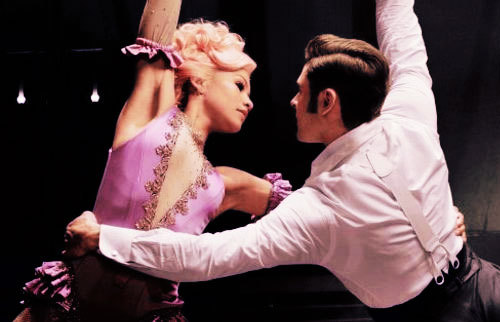
Judging Functional Axis:
Extroverted Feeling (Fe) / Introverted Thinking (Ti)
Anne is a warm-hearted girl who easily forms connections to others in the circus group and feels protective toward them. She expresses her feelings for Philip in a passionate song, but admits at the end that though she “wants” him, she cannot “have” him because society would frown on it. She finds it hard to bear public scorn, shame, and criticism, and only feels confident when others (such as Lettie) are with her, singing about needing acceptance for “who I am.” Anne flees from Philip’s parents when they shun her for being black and a circus performer. Her decision to not pursue a relationship with him, even though it’s what she wants, until she feels secure is rational and detached.
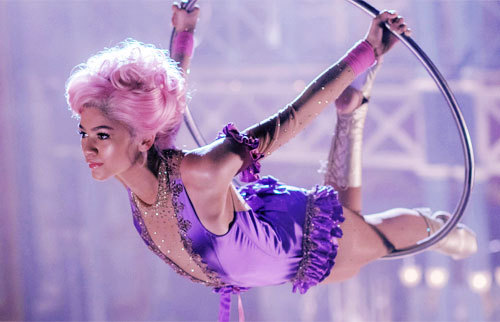
Hogwarts House: Hufflepuff
House Traits: hard work, patience, loyalty, and fair play.
Though she doesn’t have much screen time, her dedication to her circus family and friends is admirable. Anne doesn’t want to rock the boat too much, and puts others’ welfare ahead of her own (it’s possible she fears their biracial relationship might draw even more negative attention to the circus, and threaten Philip’s relationship with his parents).

Enneagram: 9w8 so/sx
Tritype: 946 The Seeker [9w8 4w5 6w5]
Anne does not like conflict, nor does she want to draw attention to herself or cause a stir. She is prone to merging with other people and then pulling away out of caution and social awareness, to protect her inner sense of self. Her 8 wing lends her an edge, though, that is willing to take a stand when she feels strongly enough about her opinions. Her 4 makes her feel different from other people and pull away with distrust when Philip pursues her romantically; her 6 wing makes her feel safest in a group of like-minded individuals.
135 notes
·
View notes
Text
Enneagram 6: The Loyalist

Healthy Sixes trust their own experiences and are okay with being unable to predict the outcome. They are productive, logical thinkers who organize their thoughts and actions around what is most advantageous for the common good. Astute judges of character, they are honest, loyal, reliable, and positive.
Six Traits
Sixes imagine and plan for the worst
Sixes distrust and authority figures
Sixes are sharp, analytically-minded troubleshooters
Sixes are the ultimate devil’s advocate
Sixes are funny, understanding, loyal, and compassionate
Sixes suffer from almost-constant low-level anxiety
Sixes are quick and competent in a crisis… then fall apart
Sixes wait for the other shoe to drop
Sixes are rarely sure they’ve made the right decision
Fear influences all of the Six’s life choices
Sixes hate unpredictable situations and prefer order to chaos
Sixes distrust flattery or too many compliments
Sixes are slow to open up but then never leave you
Sixes are skeptical of the unknown and ask hard questions
Sixes see two sides to everything and doubt themselves
Sixes turn their anxiety into self-depreciating humor
Sixes often forget their past success and take on too much work

Enneagram Wings
6w5: are intellectual, cautious, self-controlled, introverted, and seek security through an authority figure; they feel safest in groups that share their values or belief systems; they protect their personal information and seek alone time, which exacerbates their fears; often, they over-analyze instead of act.
6w7: are entertaining, adventurous, and playful, willing to take risks for their loved ones, but always careful to have a backup plan in case the mission fails.
Phobic: these Sixes obey the rules and are loyal to authority, in whom they place their trust, are deferential to their boss and avoid conflict. They do not challenge their fears and instead stay inside ‘safe zones.’
Counter-Phobic: these Sixes are less compliant and agreeable, more inclined to actively challenge authority to provoke a counter-attack (and reveal the truth about the ‘authority’). They try to identify, target, and defeat their fears.
Under stress: Sixes act like unhealthy Threes (become workaholics, pursue material success, and hoard resources to make them feel more secure); they put on a facade of competence to dull their anxiety and impress others with how ‘together’ they are, but refuse to do anything they doubt they can succeed at or take unnecessary risks.
When feeling secure: Sixes move to the positive side of Nine, less likely to have panic attacks about what could happen, stop planning for disasters, and have less general anxiety. They become amusing, flexible, enigmatic, and energetic, and less narrow-minded or rigid in their beliefs, able to trust their instincts about other people and become less jaded.
Advice for the 6: doubt yourself less, and trust yourself more. You have more courage and strength than you know. Believe and trust in something bigger than yourself. Believe that whatever happens, you can always find a place of safety, and you can trust your friends to have your back. Consider prayer or meditation to calm your mind. Rebel when necessary, not out of fear. Record your successes and read them often, to remind yourself that you can make good choices alone. Be positive about others’ ideas, instead of tearing them apart. Limit your exposure to the news. Learn to recognize the difference between legitimate fear and free-flowing anxiety.
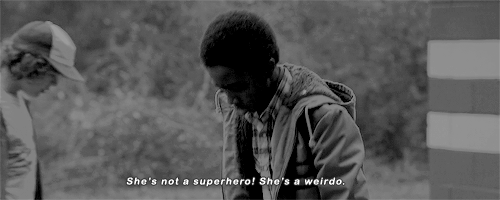
Influences on MBTI Types:
ISTJ: relies on extensive knowledge and research to prepare oneself for the worst, motivated through inferior Ne fears of “the great unknown”; unlikely to take risks, semi-aggressive in pointing out logical flaws; may become rigid in their belief system and traditionalist in their views.
ESTJ: a safety-first decision-maker and reluctant leader, who prepares for all possible negative outcomes and does not move forward until certain of success; may distrust and push away from their emotions, fearing they might be a source of “weakness,” leading to poor inferior Fi development (and insecurity in their relationships, which causes additional anxiety); prone to traditionalist or nationalist thinking (their ‘safe’ zone).
ISFJ: relies on extensive knowledge and research to prepare oneself for the worst, motivated through inferior Ne fears of “the great unknown”; unlikely to take risks, desperate to form emotional connections but hesitant to reveal too much personal information; extremely loyal and care giving toward those who win their trust, often uses self-depreciating humor to amuse others, but semi-detached from their feelings (over-reliant on analyzing and problem-solving with Ti).
ESFJ: takes on a mothering role in protecting and shepherding their loved ones / trying to anticipate and problem-solve any potential issues, eager to avoid risk, feels safest in familiar territory and/or with others who share their values; low Ne issues of paranoid suspicions, indecisive and second-guessing of their decisions (low Ne issues + 6 fearfulness); strong reliance on inferior Ti, but insecurity about its blind spots.
INTJ: distrustful and secretive, prone to negative idealization and/or may face high Ni conflict with 6 in trying to identify and eliminate problem areas as they go; may have trouble identifying a safe zone, and involve themselves in a rigid ideology to feel safe; pushes away from inferior Se / risk taking, overestimates how much they can accomplish at once; due to indecisiveness, may mistype as a Ne or Si type.
ENTJ: often builds their own system which enables them to feel safe, or distrusts authority other than their own; uses Se to deal with problems as they happen, but has a negative outlook on life and always prepares for the worst; may be indecisive and self-doubting, has inferior Fi issues of feeling anxious in their relationships, which combines with Ni ‘reading’ between the lines / into things overmuch.
INFJ: distrustful and secretive, prone to negative idealization and/or may face high Ni conflict with 6 in trying to identify and eliminate problem areas as they go; may have trouble identifying a safe zone, and involve themselves in a rigid ideology to feel safe; pushes away from inferior Se / risk taking, desperate to form emotional connections but hesitant to reveal too much personal information; extremely loyal and care giving toward those who win their trust, often uses self-depreciating humor to amuse others, but semi-detached from their feelings (over-reliant on analyzing and problem-solving with Ti).
ENFJ: takes on a mothering role in protecting and shepherding their loved ones / trying to anticipate and problem-solve any potential issues, eager to avoid risk, feels safest with others who share their values; uses Se to deal with problems as they happen, but has a negative outlook and always prepares for the worst; strong reliance on inferior Ti, but insecure about their relationships; may fall into a narrow ideology (Ni) to feel safe.

ESTP: far more risk-adverse and more analytical than other ESTPs, may mistype as an ISTP due to reliance on Ti, with inferior Ni struggling to identify future negative outcomes; prone to a lot of negativity about the future (and singular conclusions about it); less self-assured about their ability to wing things, prone to low-level anxiety over tert-Fe (the desire to connect to others, but uncertainty and suspicion causing detachment issues).
ISTP: intensely analytical, with frequent Ti/Ni loops (predicting the worst and preparing for it), not inclined to risk-taking, low NiFe desire to connect to a larger ideology or group who can provide security in being “right”; especially good at pointing out logical fallacies, and trusting of their ability to ‘read into’ authority figures’ motives.
ESFP: more covetous of traditionalism and rigid ideology than other ESFPs, prone to knee-jerk reactive (and often competent) impulses; less emotional and more driven to arm oneself with Te facts / logic / strong decision making, but struggles with continual self doubt, waffles on decisions once made, and feels insecure about going out on a limb alone; may cling to an ideology of the future that makes them feel safe (Ni).
ISFP: less emotional and more reliant on logic than other ISFPs, prone to Ni-looping (fear of singular negative outcomes, and then uses Te to try and effectively head them off); hard-working and responsible, but does not like additional responsibilities; may distrust their logic center, and feel safer when others agree with them. Prone to negativity and becoming secretive and withdrawn when anxious.
ENTP: quick to read beneath the surface and assign motives to authority figures, or point out flaws in proposed ideas; often indecisive, self-doubting, craves external affirmation and reassurances about their logic (tert-Fe needs); may be safety-conscious and reluctant to abandon old belief systems that root them into ‘feeling’ safe about the unknown (inferior Si); less risk-taking than other ENTPs, and more traditional / covetous of finding something, anything to cling to that seems “true.”
INTP: super-analytical and detached, wants to connect to a community through shared values (low Fe) but suspicious, distrustful, quick to read beneath the surface and assign motives to others or second-guess their relationships, often loyal to former ideologies or belief systems (faith, science, nationalism, family, etc) as their security checkpoint; will read up on many different things in order to “arm themselves for the worst.”
ENFP: quick to read beneath the surface and assign motives to authority figures, or point out flaws in proposed ideas; often indecisive, self-doubting, and distrustful of their Ne (they may not feel it is ‘practical’ in the real world) – which means over-reliance on tert-Te to problem solve, point out rational flaws in proposed ideas, and come up with worst-case scenarios instead of the usual Ne-dom optimism; may be detached from their emotions as a result of continual Ne/Te looping; may be safety-conscious and reluctant to abandon old belief systems that root them into ‘feeling’ safe about the unknown (inferior Si); less risk-taking than other ENFPs, and more traditional / covetous of finding something, anything to cling to that seems “true.”
INFP: less emotional and more reliant on logic than other INFPs, quick to read beneath the surface and assign motives to authority figures, or point out flaws in proposed ideas; often indecisive, self-doubting, and distrustful of their Ne (they may not feel it is ‘practical’ in the real world); strong Si-roots (areas in their thought process they refuse to question, challenge, or second-guess); may distrust their logic center, and feel safer when others agree with them. Prone to disappearing when anxious.
- ENFP Mod
2K notes
·
View notes
Text
Enneagram Type 9

The Peacemaker
pleasant, spaced-out, peaceful, forgetful, generous, stubborn, patient, resigned, accepting, diplomatic passive-aggressive, open-minded, judgmental, empathic, unassertive, caring, self-forgetting
60 notes
·
View notes

